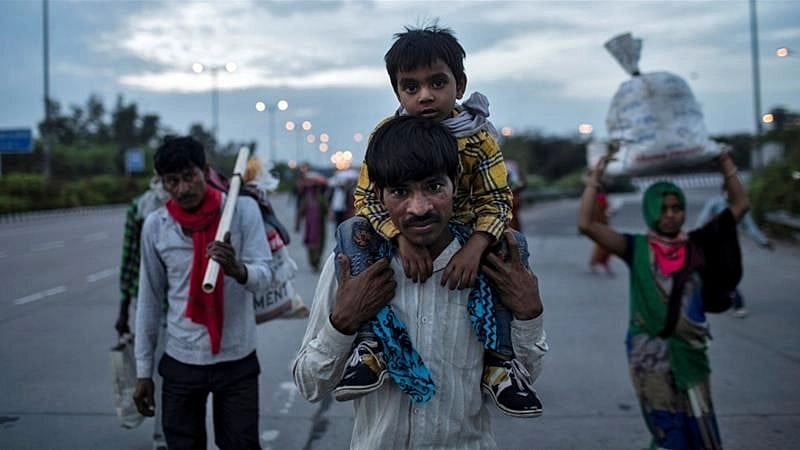India’s health ministry aims to push for stronger regulations on sales and marketing of e-cigarettes that were banned in mid-October 2021, ignoring petitions to re-examine the laws. The ministry last week issued a public notice for stricter implementation of the Act that prohibits manufacture, sale and advertisements of electronic cigarettes. However, experts claim that this is not the right approach. In the absence of a workable strategy, the health ministry should have changed its stance to a more science and evidence-based approach to reduce harm and thus, regulate the sales and marketing of e-cigarettes.
The officials of the ministry have not taken any new position as of now. However, it would be important to do so at this juncture when there is mounting global evidence — scientific, clinical and consumption-based — on significant harm reduction from e-cigarettes and vaping to reconsider India’s position. This is all the more so because, in a few months, a billion plus India will be a key component of the tenth session of the Conference of the Parties (COP10) to the World Health Organization Framework Convention on Tobacco Control and the Third Session of the Meeting of the Parties (MOP3) to the Protocol to Eliminate Illicit Trade in Tobacco Products. That is one of the world’s biggest platforms to set the agenda for harm reduction from tobacco across the globe and, arguably, the best platform to set the agenda for reduction of harm from tobacco.
However, health ministry officials would not budge. They are unlikely to discuss what some of the progressive nations across the world have decided to do to reduce tobacco harm. It is a strange stubbornness that can easily be challenged in a court of law.
India has the world’s second largest number of smokers. More than 1 in 4 adults consume tobacco in India. Tobacco consumption claims more than a million lives in the country. India refuses to accept that in a heavily-populated nation, the onus is on tobacco users themselves to effect a change and generate awareness about effective measures to quit tobacco and, failing that, reducing tobacco harm.
In India, the ban on e-cigarettes came through the enactment of the Prohibition of Electronic Cigarettes (Production, Manufacture, Import, Export, Transport, Sale, Distribution, Storage and Advertisement) Act, 2019. Experts have opined that the move was wrong and in contrast to the prevailing law for regular cigarettes and tobacco products.
The Cigarettes and Other Tobacco Products (Prohibition of Advertisement and Regulation of Trade and Commerce, Production, Supply and Distribution) Act, 2003 (COTPA) does not put a ban on the production, supply, distribution and sale of cigarettes and tobacco products.
COTPA was enacted to prohibit advertising and regulate production, supply and distribution of cigarettes and tobacco products. Provisions were also made to regulate sales of cigarettes and tobacco products. The government’s control was simply limited to cigarette and tobacco advertisements, and to regulate trade and production.
Indian lawmakers should have drawn a distinction between an electronic cigarette that does not use tobacco vis-a-vis a tobacco product and irrespective of mode of combustion (heat or burn), the latter ought to have fallen under the ambit of the COTPA.
India must see and follow the world. The US FDA has recognised HNBs and authorised their marketing in the US based on extensive scientific research. The UK House of Commons’ science and technology committee has observed that e-cigarettes “lack the tar and carbon monoxide of conventional cigarettes — the most dangerous components”.
Consider the case of other nations. In Thailand, the parliamentary standing committee on public health has called on the government to reverse the ban on heated tobacco products and e-cigarettes and adopt a policy of tobacco harm reduction and allowing access to less harmful alternatives. In Egypt, the head of the Health Committee of the Egyptian Parliament has endorsed THR in a public statement in January 2023. The African National Congress (ANC), South Africa’s ruling party, has approved two resolutions mandating science and evidence-based policy making.
Why is India not changing?
Does India need more science-based evidence? In an article in Lancet, two former WHO officials Prof. Robert Beaglehole and Prof. Ruth Bonita suggested only 30 per cent of the countries are on track to achieve WHO's target of 30 per cent reduction by 2030 in adult tobacco usage. The number of tobacco smokers worldwide is reducing at a much slower rate than expected. India with close to 100 million adult smokers — has a critical public-health concern.
Most people smoke because they are dependent on nicotine. Tobacco harm reduction reduces the harm caused by burnt tobacco by replacing cigarettes with much less harmful ways of delivering nicotine; these alternatives have great potential to disrupt the cigarette industry.
India should know people who switched from cigarettes to e-cigarettes to heated tobacco had lower levels of exposure to harmful chemicals than those who kept smoking, but higher levels of these toxins than those who stopped using tobacco altogether. Most of the harmful effects of cigarettes that kill half of the regular smokers come from inhaling toxic chemicals made by burning tobacco.
It is time for India to change some of its tobacco laws.
Shantanu Guha Ray is the Asia Editor of Central European News, UK. He is also a columnist with Money Control and Bloomberg Quint Prime.


.jpg)









